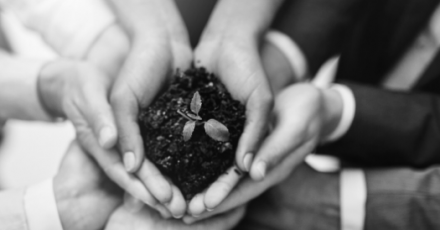Insights > Blog

Resilience for today; why we need it & how we can build it
BY LISA HUGHES, EXECUTIVE COACH AND FACILITATOR | 2021
Whether in conversation with friends or colleagues, or in your social media feed, you might hear a lot about resilience these days. It's a concept that crops up especially in challenging times such as we're experiencing now. But what is resilience, why do we need it and, more importantly, how do we build it?
Resilience is our ability to cope with and recover from adversity, challenges and problems. Our professional and personal lives inevitably present us with challenges; we have all suffered disappointments, we have all experienced adversity, we all have our ‘stuff’.
The bad news is that we live in complex systems and we can’t predict, neither can we control, the events around us. The good news is that if we are intentional we can build capacity and skills to not just bounce back but bounce forward. Resilience is a skill set and it can be learnt.
The Four Domains
So, how do we build resilience for ourselves, in our teams and in our organisations? Resilience can be built in four different domains; physical, mental, emotional and spiritual. Let’s look at all four to find out how we can build our capacity and find the tools to cope.
Physical
The physical domain is the foundation of all others, which is why our own wellbeing and that of our teams and our wider organisation is fundamental if we want to thrive. It’s also in some respects the most straightforward. And we know what we need to do to build our capacity; sleep, good diet, exercise, taking regular breaks. These are useful tools for when we encounter difficulties – going for a walk, taking a break, sleeping on a problem, simply moving to a different chair or room can change your perspective.
If you are a ‘reactive’ person ask yourself to HALT – am I Hungry, Angry, Lonely or Tired - before you answer or send that email. You could save yourself a lot of hassle.
Mental
Our mental health is as important as our physical health. We need to set boundaries to recharge and recover our mental flexibility and agility. We are not computers, built to run multiple programmes concurrently, we need to take breaks so that we can approach life and work with a fresh set of eyes and a clear head.
Create boundaries around work and life. This is especially important now that many of us don’t commute so we need to create new rituals to ‘go’ to and ‘leave’ work. When you are under pressure, check in with yourself and with others using the Demand, Support, Control model. What are your work demands – are they reasonable? What supports do you have or can call on? What are your choices? What can you control?
Emotional
We are not thinking machines. As Antonio Damasio put it, we are feeling machines that think. Talking about how we feel really matters; when we can recognise, name and speak emotion we can begin to regulate and manage our emotions in a healthy and positive way. Name it to tame it.
Social support is hugely important, so staying connected to your team is more important than ever; conversations need to be frequent and more than just about work - be a human.
Spiritual
This is a sense of connectedness to those things that are greater than ourselves. It can be the purpose and meaning we find in our work, it can be serving customers and clients, it can be that we are all in this together. But this sense of community, our common humanity and shared experience can fuel our resilience. Keeping ourselves and our people connected to the big picture and the purpose of our work creates perspective which helps us not just to cope, but to look to the future.
Working with all four domains of resilience enables us to build back better, to grow and develop, building confidence and collective competence based in what we can overcome together.
To bounce forward, not just to bounce back.
If you would like to find out more about our course in Building Resilience for Workplace Wellness click here.

About the author
Lisa is an Executive Coach and Facilitator who works with individuals and teams around Leadership, People Management, Resilience Building and Successful Change Management.
Lisa is passionate about identifying and activating people’s unique strengths, skills and values to enable and embed real and sustainable behavioural change. Taking an inside-out approach, Lisa unlocks potential and supports people in shifting mindsets and changing gear in work and life.
